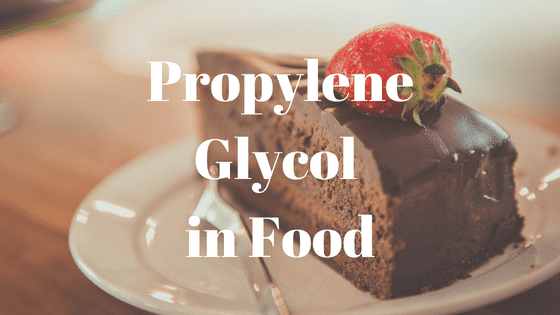[av_image src=’https://ecolink.com/wp-content/uploads/2018/08/Propylene-Glycol-1.png’ attachment=’13088′ attachment_size=’full’ align=’center’ styling=” hover=” link=” target=” caption=” font_size=” appearance=” overlay_opacity=’0.4′ overlay_color=’#000000′ overlay_text_color=’#ffffff’ copyright=” animation=’no-animation’ av_uid=’av-jky0u92u’ admin_preview_bg=”][/av_image]
[av_textblock size=” font_color=” color=” av-medium-font-size=” av-small-font-size=” av-mini-font-size=” av_uid=’av-jkvjyau1′ admin_preview_bg=”]
What is propylene glycol?
Propylene glycol is a colorless and odorless liquid created from petroleum. Most food industries use propylene glycol mainly because it has the ability to keep a substance moist, also its capability to maintain texture and the fact that it can be mixed with almost anything (water, alcohol, oil and more). It is widely used in food and drink products as a thickener and preservative or to add a little bit of sweetness.
Is propylene glycol safe?
Most scientists have determined that propylene glycol in small quantities is safe to consume, although it can be toxic in large doses.
Food industries that use Propylene Glycol:
Most people do not know that a lot of the drinks and food that they consume in their everyday lives contain propylene glycol. The maximum amounts of propylene glycol are:
- 97% of seasonings and flavorings
- 24% of confections and frostings
- 5% of alcoholic beverages
- 5% for nuts and products made from them
- 5% of frozen dairy products
- 2% for all other foods
Some of the common food industries that use propylene glycol as a main ingredient are:
Dunkin’ Donuts in their flavored iced teas
Nestea in their flavored liquid water enhancers
Ice Cream industries such as Blue Bunny and Coldstone Creamery
Boxed Cake mixes such as Betty Crocker chocolate mix and Duncan Hines yellow cake
To clarify, these are the ways that food industries are using propylene glycol:
- As an anti-caking agent: It helps prevent food components from sticking and forming clumps
- Antioxidant: Propylene glycol is able to extend the shelf life of food
- As a carrier: Dissolves other food additives or nutrients
- As a dough strengthener: this product is able to modify the starches and gluten in dough to make it more stable
- As an emulsifier: it prevents food ingredients from separating such as oil and vinegar in salad dressing
- Moisture preserver: propylene glycol helps food to maintain a stable level of moisture
- Processing aid: frequently used to enhance the appeal of the appearance of food
- Stabilizer and thickener: used to hold food components together
- Texturizer: It can change the appearance or mouthfeel of a food
Additionally, it is used in industrial products like paint, antifreeze, artificial smoke and e-cigarettes.
[/av_textblock]















